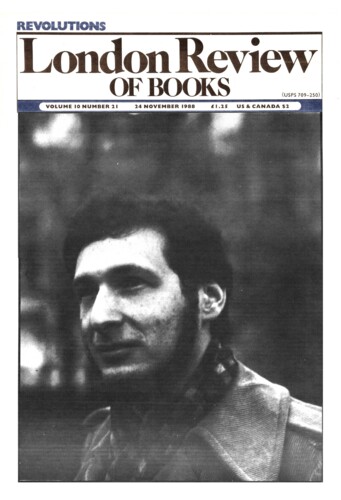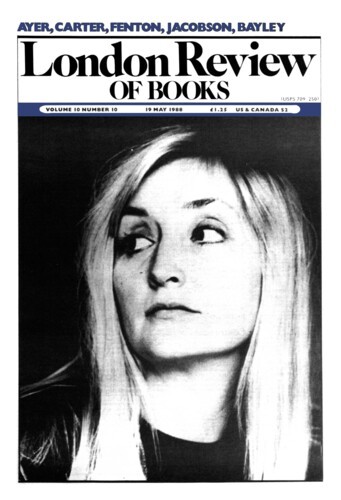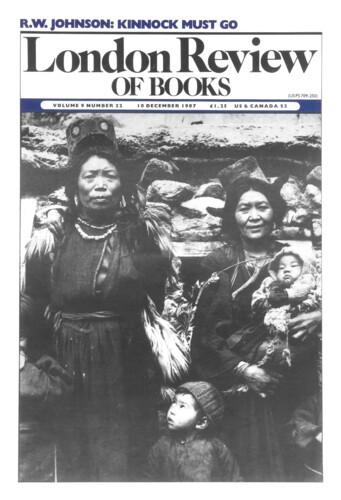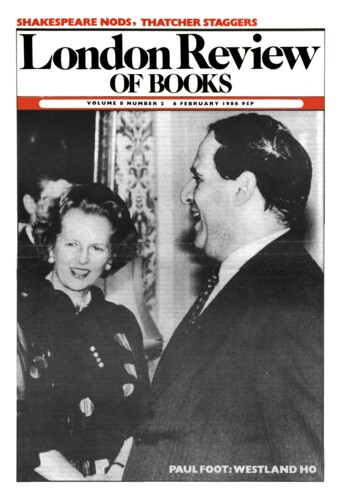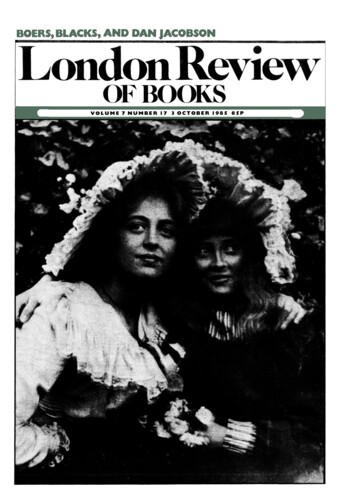Negative Capability
Dan Jacobson, 24 November 1988
T.S. Eliot and Prejudice. Keats and Embarrassment. The parallel between the title of Christopher Ricks’s new book and that of his earlier study of Keats is not accidental. In each case he takes a state of mind which is usually held to be disadvantageous, humanly and artistically speaking, and offers a critical reexamination of its presence in the work of his chosen author. One sees the polemical point clearly enough. Who would wish to read a book called T.S. Eliot and Piety? Or Keats and Enthusiasm?
